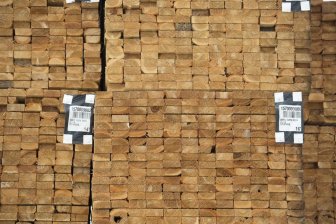Canadian furniture manufacturers and retailers are entangled in a battle over sofas and recliners being shipped from Asia.

On May 5, the Canada Border Services Agency (CBSA) implemented tariffs on some leather-seated products from China and Vietnam.
They reached as high as 295 per cent for products from China and up to 101 per cent for products from Vietnam.
It’s a measure the CBSA took after it determined products were being dumped and subsidized in the Canadian marketplace.
Furniture retailers have been making appeals to lawmakers across the country to address the taxes.
Many are deciding whether to pass on the added expense to customers or to take on the tax themselves, which they say is tough given the economic situation brought on by the COVID-19 pandemic.
Richi Collection operates a handful of stores in Alberta and said it had about $300,000 worth of furniture ordered that was subject to the full 295 per cent tariff the day the CBSA made its decision.
“Now I have two choices. Either A, I forfeit all the money that I spent for that product. Or B, I pay in excess of $1 million to basically bring it, land it in Canada to sell to the public which obviously is not going to sell at those prices, nor do I want to sell it to the public at those prices,” Rishi Dhawan said.
Like many showrooms across the country, Richi Collection has a mixture of Canadian and imported furniture, but because of wages and environmental standards in Canada, products from Asian countries tend to be cheaper.

The CBSA’s investigation was prompted after five Canadian manufacturers applied for tariff protection.
Palliser, one of the companies who made the application, said Canadian products made up more than half of the products in the market for reclining and stationary leather seating in 2003.

Get daily National news
It says that’s now down to 18 per cent, which has also led to four of its five Canadian factories being shut down.
“The objective of the Canadian producers is not to prevent imports, but to operate with a level playing field without artificial foreign government intervention,” read a statement from Palliser to Global News.
The company noted it opened factories in Mexico which supply the U.S. market.
Jonathan O’Hara represents two of the five companies, including Palliser.
He added the intent of the tariffs is to allow the manufacturing sector to grow in Canada, with plans of investing in factories and creating jobs in Canada.
Dhawan said he’s willing to comply with any decision the government makes, but was hoping the tariff wouldn’t be immediate so the orders he placed before May 5 wouldn’t be subject to the tariffs.
But O’Hara said the CBSA made many aware of its investigation in the winter and that retailers knew tariffs could have been a possibility.
A public policy professor at the University of Saskatchewan said this isn’t the first time China has been involved in flooding the Canadian market with a product where domestic manufacturing takes place.
“People raced to the bicycle stores. They bought the cheaper bikes. They were happy as could be. And then later on they wake up and say, ‘Yeah, but we don’t have those jobs in town anymore,’” Ken Coates said.
The professor at the Johnson Shoyama Graduate School of Public Policy said that took place around 10 years ago and has caused serious damage to Canada’s bicycle manufacturing sector.
Coates added if the tariffs become permanent, it will be incumbent upon Canadian manufacturers to take advantage and invest in technology, infrastructure and job creation in Canada in order to meet demand in the country.

The Retail Council of Canada said Canadian furniture manufacturers can currently take anywhere from three months to a year to fill an order.
A smaller retailer on Vancouver Island said some aren’t even taking new orders, as many like his business are scrambling to find a way to supply their stores for the end of the summer and into the fall.
But Dodd’s Furniture & Mattress said any products built in Canada will be more expensive than what customers are used to.
“If they can go across the country and fill the needs, that would be great. But keep in mind that you’re going to pay a lot more in price because made in Canada is not something that’s affordable for everybody,” Love Dodd said.
Dodd has three stores across the island with two warehouses and said he has cancelled 35 containers which were set to come from Asia.
He noted that works out to just short of $1 million in product that was set to arrive throughout the year.
Both Dodd and Dhawan noted the demand for the Asian products was important for lower-and-middle income people who couldn’t really afford the Canadian-made options in their showrooms.
The CBSA will make its final decision on the tariffs in early August.
If it rules in favour of making tariffs permanent, the Canadian International Trade Tribunal — a body that is independent from the CBSA — will hold an inquiry into the tariffs and how domestic manufacturers are impacted.







Comments